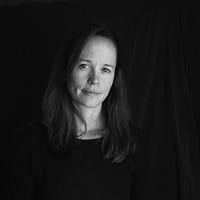In many regions of the world widowhood marks a “social death” for a woman – casting her and her children out to the margins of society. Photojournalist Amy Toensing and National Geographic’s Deputy Director of Photography, Whitney Johnson, discuss the project, A Life After Loss, that looks at the status of widows In Uganda, Bosnia, and India.
Presenters: Amy Toensing Whitney Johnson
Location: St. Ann’s Warehouse
In many regions of the world widowhood marks a “social death” for a woman – casting her and her children out to the margins of society. Photojournalist Amy Toensing and National Geographic’s Deputy Director of Photography, Whitney Johnson, discuss the project, A Life After Loss, that looks at the status of widows In Uganda, Bosnia, and India.

Amy Toensing, an American photojournalist committed to telling stories with sensitivity and depth, is known for her intimate essays about the lives of ordinary people.
Toensing has been a regular contributor to National Geographic magazine for nearly two decades and recently completed her fifteenth feature story for the publication. She has covered cultures around the world, including the last cave dwelling tribe of Papua New Guinea, Aboriginal Australia, the Maori of New Zealand and the Kingdom of Tonga.
Amy began her professional career in 1994 as a staff photographer at her hometown paper, The Valley News, in New Hampshire. She then worked for The New York Times’ Washington D.C. bureau, covering the White House and Capitol Hill during the Clinton administration. In 1998, Toensing left D.C. to receive her Master’s Degree from the School of Visual Communication at Ohio University.
Toensing was named the recipient of the 2018 Mike Wallace Fellowship in Investigative Reporting at the University of Michigan, where she will study the impact of women’s movements globally and documentary film production. Her work on widows, published in the February 2017 issue of National Geographic magazine, will be exhibited at the 2017 Visa Pour L’image.

Whitney Johnson is the deputy director of photography at National Geographic. Prior to joining the magazine, she was the director of photography at The New Yorker. She’s been a champion of documentary photographers since she began her career at the Open Society Foundations, nearly 15 years ago.

Pulitzer Center’s mission is to champion the power of stories to make complex issues relevant and inspire action. Founded in 2006, the Center is an essential source of support for enterprise reporting in the United States and globally. We believe that people and communities who actively engage with systemic challenges will find solutions together. By combining breakthrough journalism with strong audience engagement in communities and classrooms, we extend the impact of journalism, cultivate public awareness, and build community empowerment. The journalism we support covers the world’s biggest challenges today, from the environment and global health to human rights and artificial intelligence.